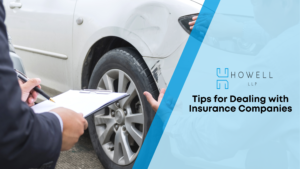Lithium-ion batteries are becoming increasingly common in everyday electronics, from smartphones to laptops, e-bikes, and even electric vehicles. However, with their widespread use comes an alarming trend—battery explosions that lead to fires, injuries, and significant property damage. Reports from states like California and New York highlight a growing concern about these incidents. If you or someone you know has experienced a lithium-ion battery explosion, it is essential to understand the steps to take and the legal implications involved.
What Causes Lithium-Ion Battery Explosions?
Lithium-ion batteries can overheat and explode due to various reasons, including manufacturing defects, improper usage, and external damage. Some common causes include:
- Manufacturing Defects: Poor quality control in the manufacturing process can lead to internal short circuits, increasing the risk of explosion.
- Overcharging: Charging a battery beyond its capacity, especially with non-approved chargers, can generate excessive heat.
- Physical Damage: Dropping a device or exposing it to extreme temperatures can compromise the battery’s internal structure.
- Poor Design or Counterfeit Batteries: Some cheap or knockoff batteries fail to meet safety standards, leading to hazardous situations.
Steps to Take If You Experience a Lithium-Ion Battery Explosion
If you suspect a lithium-ion battery has caused a fire or injury, taking immediate action is crucial. Here’s what you should do:
- Preserve the Evidence: The most important step is keeping the device or battery intact. Avoid discarding it, as it will be a key piece of evidence in any legal or insurance claims.
- Identify the Manufacturer: Look at the device itself or its packaging to determine the manufacturer. This will help in identifying who may be responsible for the faulty battery.
- Document the Incident: Take photos and videos of the damage, injuries, and any visible defects in the battery. If possible, obtain witness statements.
- Seek Medical Attention: If you have sustained burns or other injuries, get medical help immediately.
- Contact a Lawyer: These cases can be complex, especially when dealing with manufacturers based outside the U.S. An experienced attorney can help investigate the issue and determine liability.
Legal Challenges in Holding Manufacturers Accountable
When pursuing a legal claim, several factors come into play:
- Jurisdiction Issues: Many electronic products and batteries are manufactured in other countries, making it challenging to hold foreign companies accountable in U.S. courts.
- Determining Fault: Lawyers and engineers will need to analyze the battery to establish whether the explosion resulted from a defect or user error.
- Manufacturer Defense Tactics: Companies may argue that the user was at fault for overcharging the battery, using an unauthorized charger, or exposing it to extreme conditions.
However, even if a device was misused, it is legally foreseeable that accidents can happen. Manufacturers are expected to design products that do not pose a fire hazard under reasonable conditions.
Conclusion
Lithium-ion battery explosions are a growing problem, and understanding your rights is essential. If you have been affected by a defective battery, keeping the damaged device, documenting the incident, and consulting with an attorney can make a significant difference in your case. If you need legal advice on a lithium-ion battery explosion, feel free to reach out for a free consultation.


